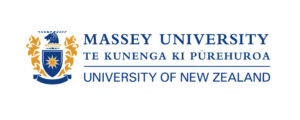
Why Study in the New Zealand?

Uncover top universities, exclusive scholarships, cost of living insights, career prospects after graduation,
and everything you need to make informed decisions.
Globally Recognized Education
Globally Recognized Education
Internationally Recognized Qualifications
Internationally Recognized Qualifications
Cultural Diversity & Vibrant Campus Life
Cultural Diversity & Vibrant Campus Life
Upto 3 Years Post-Study Work Visa
2-Year Post-Study Work Visa

How Oneiric Overseas Helps You?

not just your paperwork. Here’s what sets us apart:
Expert Counseling & University Selection
1
Application & Documentation Support
2
Scholarship & Financial Guidance
3
Visa Assistance & Mock Interviews
4
Accommodation & Post-Arrival Help
5
Guidance on finding safe housing, airport pickup, and settling in the New Zealand.
Popular Courses with Fee and Duration
Explore a curated list of popular academic programs along with their course duration and estimated tuition fees. Whether you’re planning to study in the field of business, healthcare, or technology, this guide offers a quick overview to help you compare and choose the right path for your future.
| Courses | Tenure | Average Fee |
|---|---|---|
| Master of Business Administration (MBA) | 2 years | $45,000 |
| Master of Information Technology | 2 years | $42,000 |
| Master of Engineering | 2 years | $44,000 |
| Master of Education | 2 years | $40,000 |
| Master of Science (Data Science, Environmental Science) | 2 years | $38,000 |
| Master of Finance | 2 years | $40,000 |
| Master of Nursing | 2 years | $37,000 |
| Master of Social Work | 2 years | $38,000 |
| Master of Project Management | 2 years | $35,000 |
| Master of Marketing | 2 years | $36,000 |

Best Universities we partner with







Begin Your Study Abroad Journey

New Zealand universities typically offer three major intakes each year, aligned with their academic calendar
February (Main Intake):
This is the primary intake for most New Zealand universities and institutions. A wide range of undergraduate and postgraduate programs commence during this semester. Students have the maximum options in terms of courses, scholarships, and accommodation availability.
July (Mid-Year Intake):
A secondary intake that provides another opportunity for students who missed the February deadline. While not all programs are available, many popular courses—especially in business, IT, and engineering—are open for admission.
November (Summer School / Limited Intake):
Some institutions offer summer school programs or select courses during this intake. It’s ideal for students looking to fast-track their studies, complete prerequisite subjects, or begin short-term/vocational courses. However, the number of available programs is limited.

Cost of Studying in New Zealand for Indian Students:
Undergraduate Tuition:
NZD 25,000 – 38,000 per year
Programs like Engineering, IT, and Health Sciences tend to be on the higher end.
Postgraduate Tuition:
NZD 28,000 – 45,000 per year
Fees vary based on course type. Business Analytics, Data Science, and MBA programs are typically more expensive.
Living Expenses:
NZD 20,000 – 25,000 per year
Covers rent, food, transport, utilities, internet, insurance, and personal expenses.
Costs vary by course and city. Auckland and Wellington are typically more expensive.

Scholarships in New Zealand
New Zealand offers a range of scholarships to help international students reduce their financial burden:
Manaaki New Zealand Scholarships
Fully funded (tuition, living, travel)
For UG, PG, PhD | Govt-funded
New Zealand Excellence Awards (NZEA)
Up to NZD 20,000
For UG & PG | Indian students only
University-Specific Scholarships
- University of Auckland – Up to NZD 20,000
- University of Waikato – Up to NZD 15,000
- AUT, Massey, Victoria Univ. – Merit-based awards
Te Pūkenga (NZIST) Scholarships
NZD 10,000 tuition discount
For vocational/tech programs
SIT Zero Fees Scheme
Tuition fee waived (material costs apply)
Limited programs at Southern Institute of Technology
Scholarships are typically awarded based on academic excellence, leadership potential, or financial need.

Study in New Zealand Requirements
To study in the New Zealand, students must meet both academic and language requirements:
Academic Qualifications
- UG: 12th pass with 60%+
- PG: Bachelor’s degree with 55%+
English Proficiency
- IELTS: UG – 6.0, PG – 6.5 (no band below 5.5/6.0)
- Other tests accepted
Financial Proof: Funds to cover tuition + living (~NZD 20,000/year)
Documents Needed: Passport, transcripts, English test scores, offer letter, SOP, visa documents
Student Visa: Confirmed admission, funds proof, health & character clearance

New Zealand Student Visa Process
Once you receive an offer letter from a New Zealand university and meet the conditions, the New Zealand Student Visa (Tier 4) process begins:
Get admission offer from a NZ university.
Prepare documents (passport, transcripts, financial proof, etc.).
Apply online on NZ Immigration website.
Pay the visa fee.
Submit application and documents.
Provide biometrics and medicals if needed.
Wait 4–8 weeks for processing.
Receive visa approval.
Travel to New Zealand.
Students must also prove they have sufficient funds and valid English proficiency.

New Zealand Top Universities
University of Auckland
University of Otago
University of Canterbury
Victoria University of Wellington
Massey University
University of Waikato

Achieve Your Global Aspirations by Studying in New Zealand


Students trust Oneiric Consultancy for overseas education.

United States



Frequently Asked Question & Answers

Why should I choose New Zealand for higher education?
New Zealand offers world-class education, a safe and welcoming environment, post-study work opportunities, and globally recognized universities. It’s especially known for its focus on research, innovation, and practical learning.
Which are the top universities and institutes in New Zealand?
Some of the top institutions include:
University of Auckland
University of Otago
Victoria University of Wellington
University of Canterbury
Auckland University of Technology (AUT)
Massey University
Wintec and other polytechnics/ITPs
What is the eligibility to study in New Zealand?
Eligibility typically includes:
Academic scores (above 55–60%)
English proficiency (IELTS/TOEFL/PTE)
Valid passport
Financial capacity to support tuition and living costs
For PG programs, a relevant undergraduate degree is required
What English tests are accepted by New Zealand institutions?
Most institutions accept:
IELTS (Academic)
TOEFL iBT
PTE Academic
Cambridge English: C1 Advanced or C2 Proficiency
Are scholarships available for Indian students?
Yes, both universities and the New Zealand government offer scholarships based on merit and need. Examples include:
New Zealand Excellence Awards (NZEA)
University-specific merit scholarships
We help you identify and apply for suitable scholarships.
Can I work while studying in New Zealand?
Yes, international students can work up to 20 hours per week during the semester and full-time during holidays. Part-time work helps with living costs and gaining experience.

